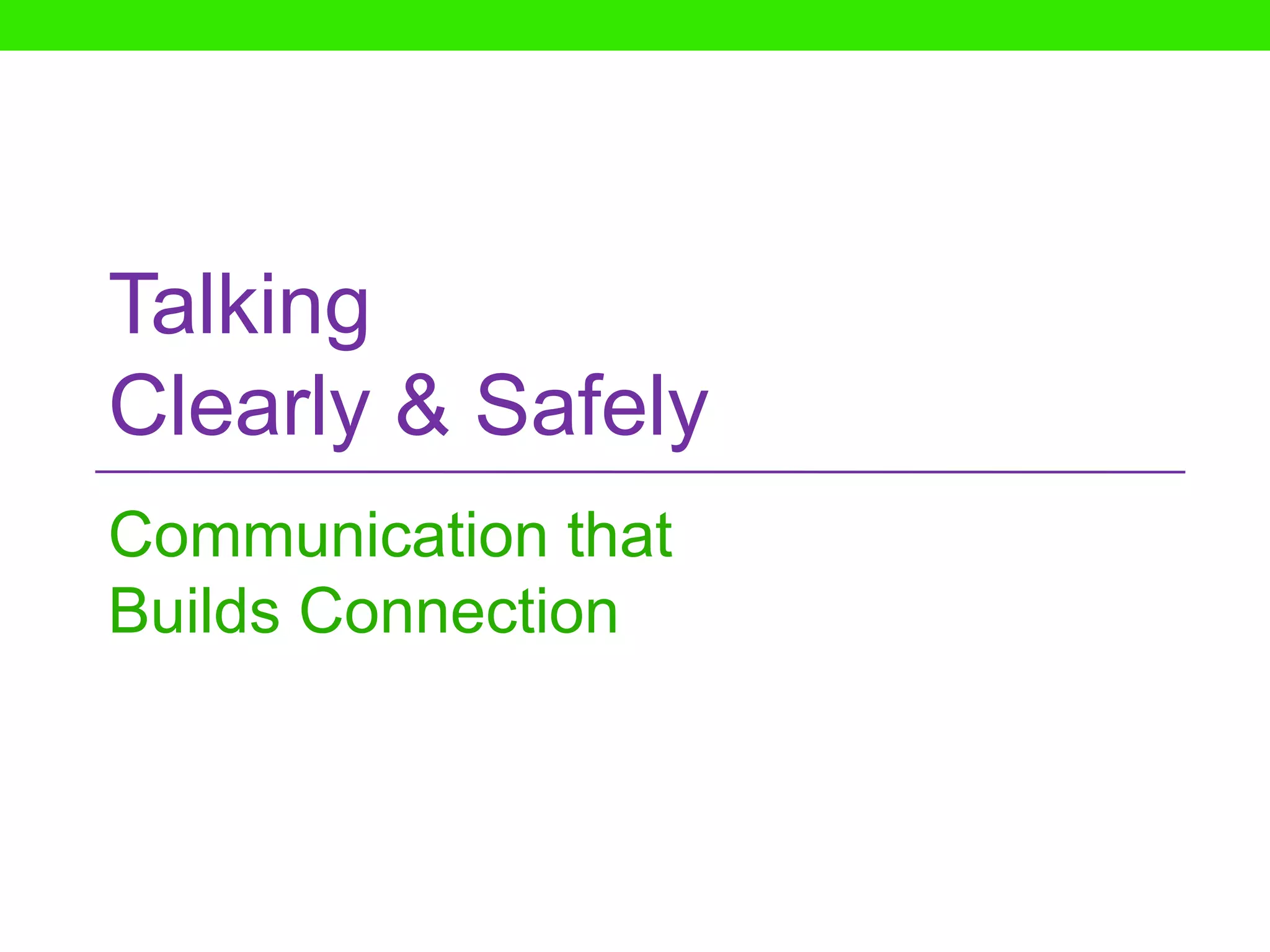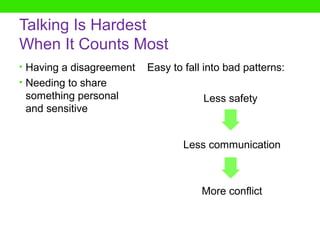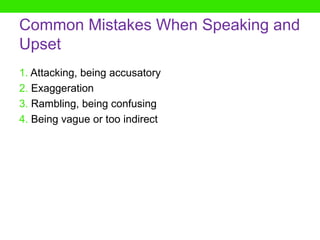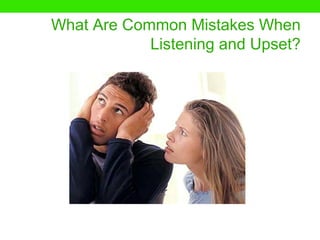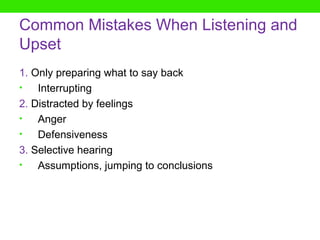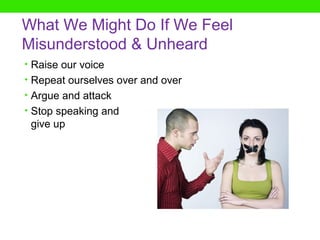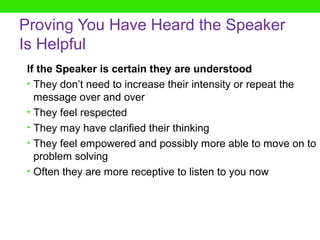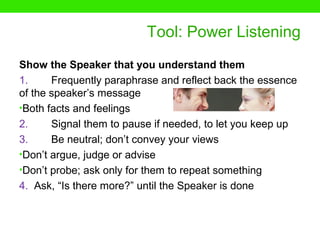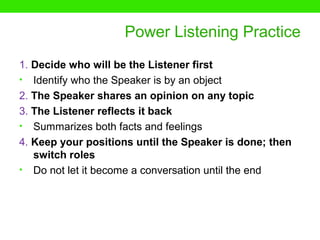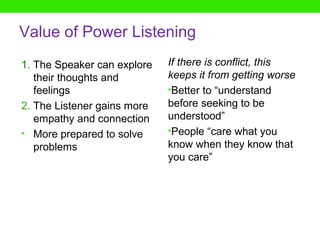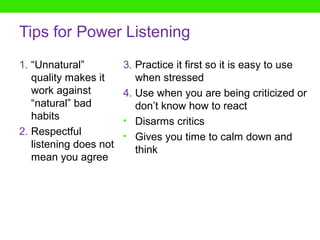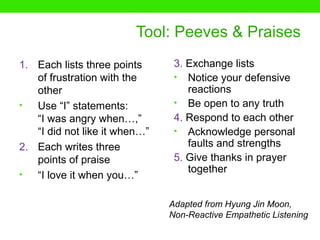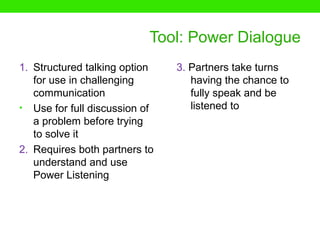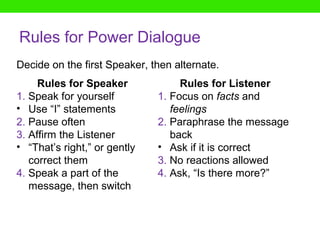The document provides guidance on effective communication when disagreements occur or sensitive topics need to be discussed. It outlines common mistakes in speaking and listening when upset, such as attacking, exaggerating, rambling, being vague or indirect, only preparing a response rather than listening, and getting distracted by feelings.
It then introduces some tools for improving communication, including power listening, where the listener paraphrases to confirm understanding without judgment, and power dialogue, where rules structure turns for speaking and listening to ensure both parties feel heard. When people feel understood, conflict can deescalate and problem solving become possible. These techniques aim to build empathy, connection, and mutual understanding even in challenging discussions.
